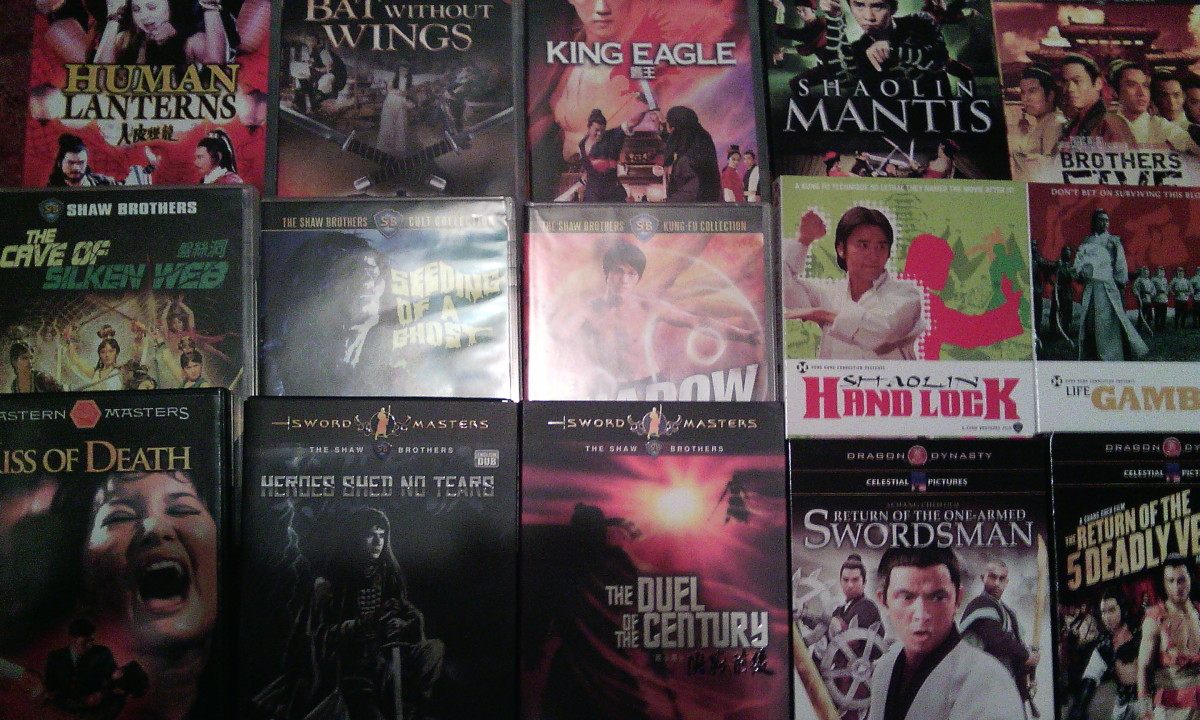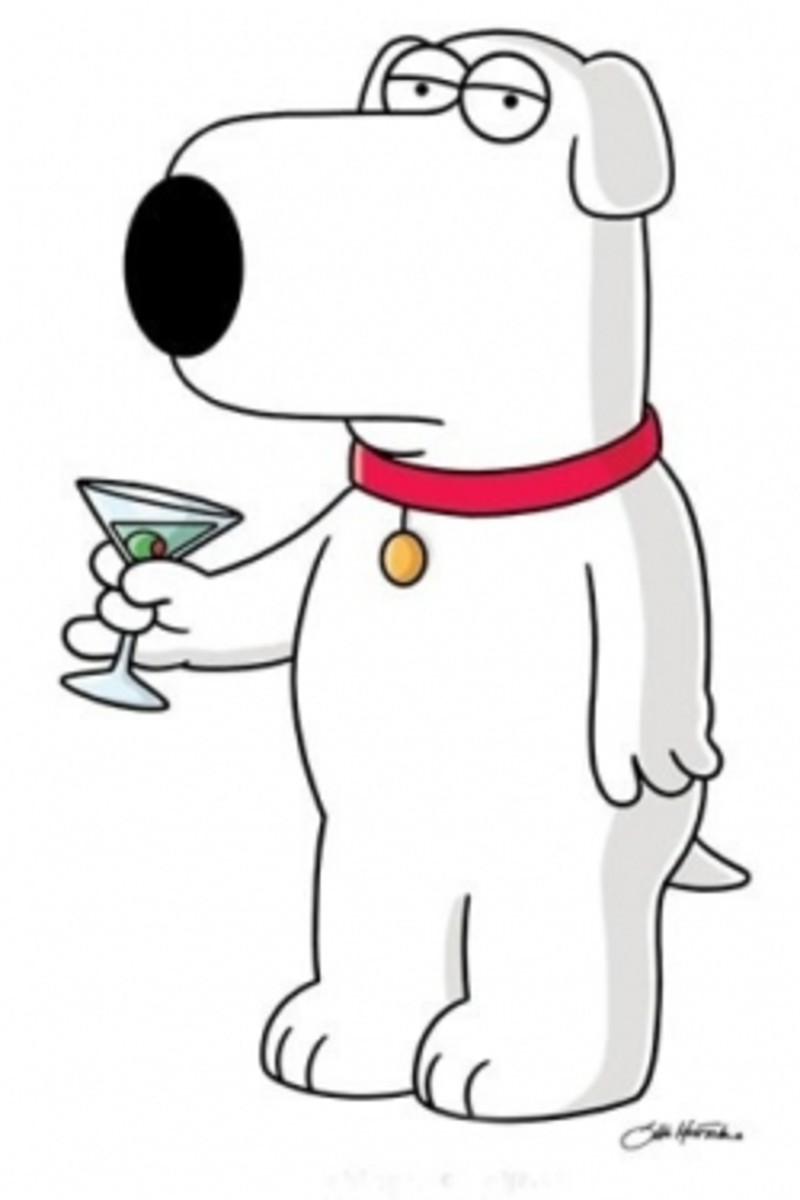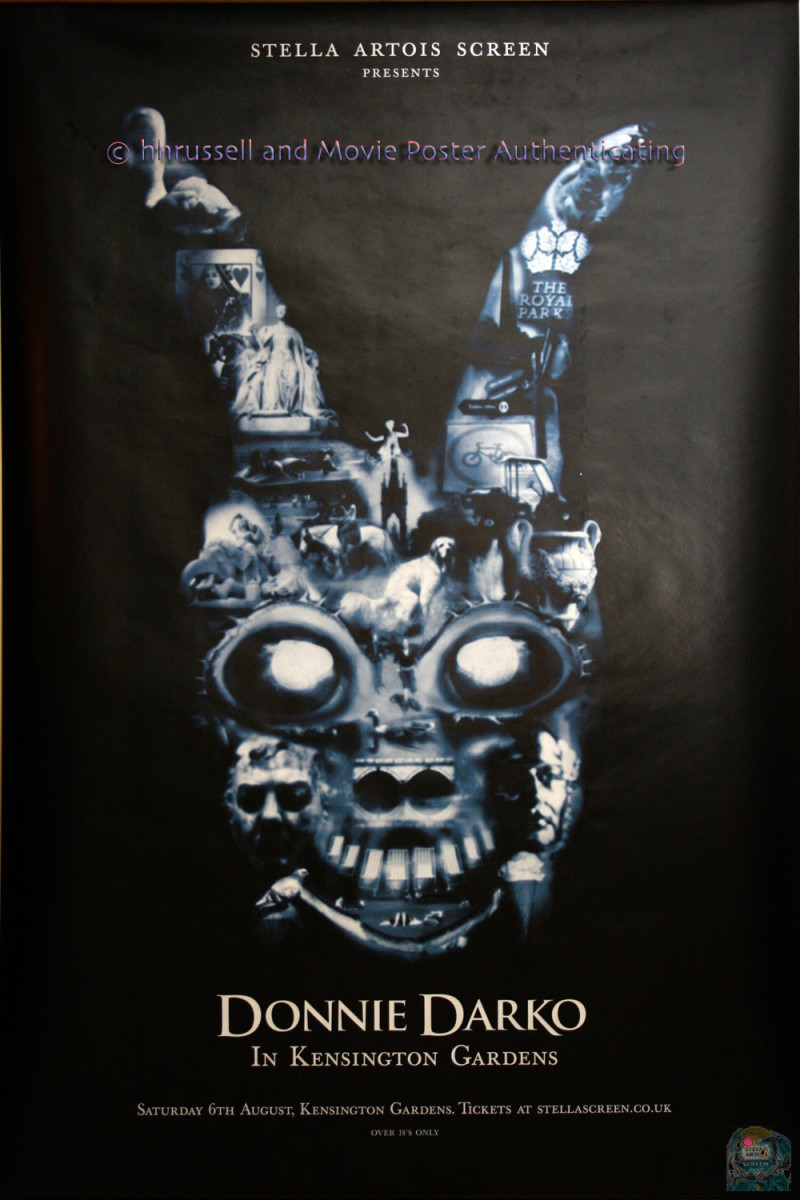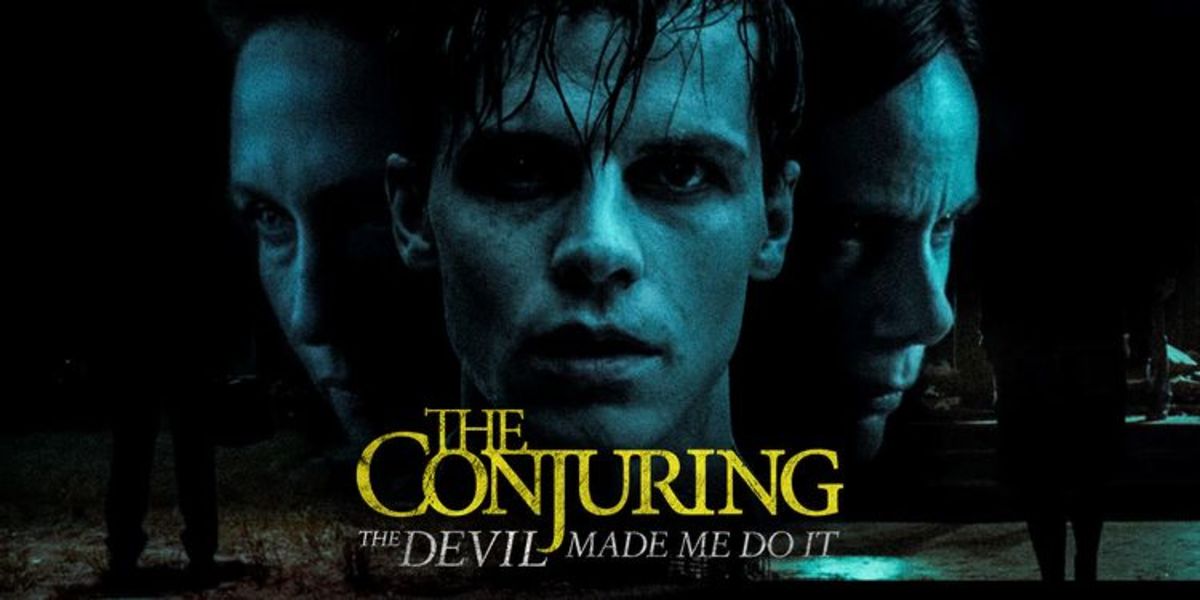Why Are These Not On DVD Yet???
Maybe I have grown spoiled in the past couple of decades. But I expect whenever I want to buy a copy of my favorite movie that I will find a legal copy on Amazon, digitally remastered in it's original aspect ratio with every existing deleted scene and outtake as the extras. I do not expect less. So it is very unacceptable to discover that any movie is not available on DVD. This is a problem anyone with their own home video library has. There is the short list of every movie and television series you wish to own a copy of, but they are still not available on DVD or Blu-Ray. Perhaps they were released on VHS and Betamax way back in the pan-and-scan 80s, or perhaps they were released in other countries, or perhaps they have never been released for home video sales as of yet. But they are not available on Amazon or in any store. Not legally at least. Bootleggers with access to poor quality prints are quick to take advantage of the demand.
Recently a few of my most wanted finally showed up on DVD. Hollywood Review of 1929, the directors cut of Battle for the Planet of the Apes ( 1973 ) and the series Get a Life had avoided DVD for years, finally getting their release in the past couple of years. But I still have gaps on my shelf where DVDs should go. This is a list of the DVDs I am still waiting for.
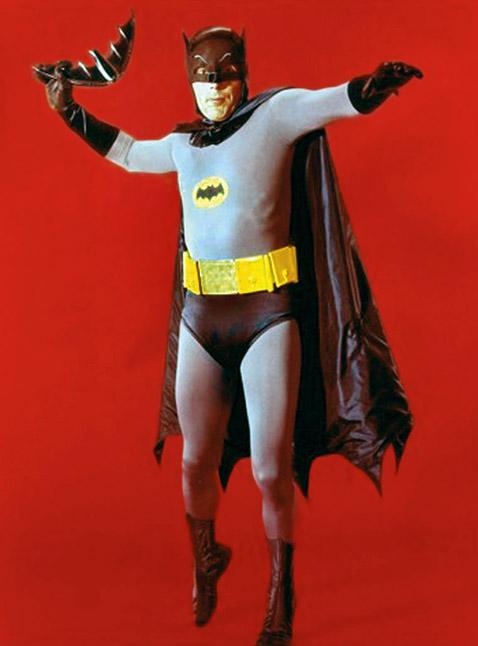
Batman
Hard to believe, but one of the most popular shows in television history has never been released on home video. And it is not because DC Comics refuses to allow it to be released. We can defuse that rumor by pointing out that DC has allowed the movie Batman & Robin ( 1997 ) to be released on DVD and Blu-ray, two formats that did not exist when the movie was first released. Batman & Robin was even worse when it came to making Batman campy, so if DC was preventing the Batman television series from being released to protect their Batman brand, then why would they allow the Joel Schumacher films to be released on new formats? Actually, the reason as to why Batman has never been released on home video began in 1965 with an agreement that seemed unproblematic at the time. DC Comics had sold the rights for a Batman television series to the ABC Network. ABC in turn made a deal with the studio 20th Century Fox to produce the series, and Fox in turn handed the project over to a production company called Greenway Productions. The deal between DC, ABC, Fox and Greenway allowed Fox and ABC to syndicate the show indefinitely, and gave 20th Century Fox exclusive rights to the theatrical film, which is why they were able to at least release that film on home video.
Now here is where things get really complicated. That same year the Kinney Parking Company merged with the National Cleaning Company forming Kinney National Company. Looking to acquire other companies with their combined capital, they purchased National Periodical Publications, the owners of DC Comics, in 1967. Other acquisitions followed. The camera company Panavision, the talent agency Ashley-Famous, and finally Warner Brothers Studios in 1969. In 1971 the company was restructured. The parking and cleaning assets of the company were sold off, and the entertainment assets were retained under a new company called Warner Communications Inc, which in effect put DC Comics under the ownership of the Warner Brothers Studio. With the blockbuster success of the movie Superman in 1979, Warner Brothers decided they wanted exclusive rights to film and distribute all further projects using the DC characters. About this time 20th Century Fox was interested in releasing the Batman series on home video. But the original deal with DC did not allow for the television series itself to be released on home video. They needed a new agreement with DC, but by this time DC's parent company Warner Brothers wanted to release the series under their own home video label. To complicate matters, both ABC and Greeenway also began claiming home video rights to the series. Now it gets even more complicated. In the mid 90s ABC was purchased by the Disney company which in turn wanted the Batman series released on their own label. With three major studios and one independent production company laying claim to the same television show, each which is determined to be the ones who release it on home video, no one is willing to cede their stake in the series to let the other release it. But there is some hope. In 2012, after decades of negotiating, ABC, Fox and Greenway reached an agreement to allow DC to use images from the show in merchandising. Some see this as hope an agreement can finally be reached on the series itself.
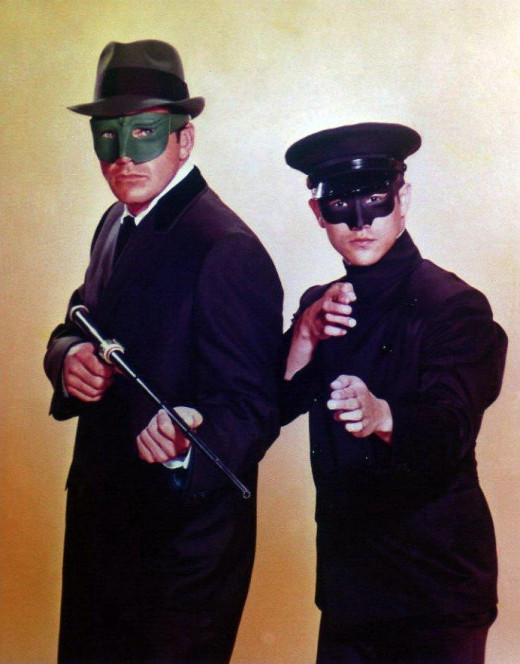
The Green Hornet
The other memorable television series from Greenway Productions was The Green Hornet, and much like with Batman, the series has never been on home video. When Batman became an instant success, producer William Dozier decided to follow it up with another superhero series. Superman was his first choice, but the rights were still held by the producers of the original Superman series. The Green Hornet was his next choice. This time Dozier wanted a serious series, so all of the campy fun found in the batman series was eliminated. Perhaps that was why The Green Hornet failed to catch on with viewers. It would only last a single season with not enough episodes to even consider syndication. The one thing keeping it from becoming a forgotten footnote to the Batman series was the casting of a then unknown Bruce Lee as the Hornet's sidekick Kato. When Lee became a superstar years later, the Green Hornet episodes were reedited into two theatrical films, The Green Hornet ( 1974 ), and the deceptively titled Fury of the Dragon ( 1976 ). Bruce Lee's popularity made him one of the original stars of the early home video market, with CBS/FOX obtaining the rights to most of his Golden Harvest films, Warner Brothers releasing Enter the Dragon ( 1973 ), and many of the independent video companies releasing Bruceploitation films like Fist of Fear, Touch of Death ( 1980 ). Even M.G.M. dug out their film Marlowe ( 1969 ) and stuck Bruce Lee on the box, even though he was in less than five minutes of the film. So why didn't anyone release The Green Hornet series on home video? Reportedly the owner of the character, George W. Trendle, was not at all happy with the series. When CBS/Fox attempted to release episodes from the series on VHS, Trendle's estate refused to give permission for a home video release. Supposedly this grudge continues to this day. However, if Trendle's family is not allowing the series to be released because it did not properly portray the characters, then why did they allow Seth Rogen to produce a comedy version of The Green Hornet ( 2011 ) that basically trashed the same characters? But certainly there has been some attempt by the owners of the Green Hornet character to prevent the series from being released. In 2000 Brentwood Home Video released the first Green Hornet movie on DVD and promised to release Fury of the Dragon later that year. The second movie was never released, reportedly due to a cease and disist order.
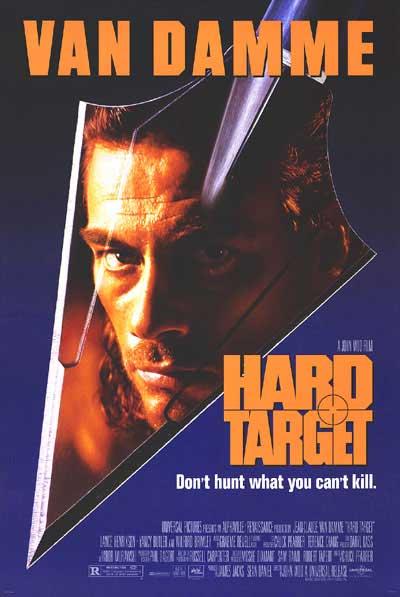
Hard Target - Directors Cut ( 1993 )
When Hong Kong film Director John Woo decided to immigrate to Hollywood, his first project was a Jean-Claude Van Damme film for Universal. It was no coincident that Hard Target had a similar title to his previous hit Asian movie Hard Boiled ( 1982 ), in fact Woo even restaged many of the action sequences. Woo had picked up a cult following in the United States with his Heroic Bloodshed films, and Universal was eager to capitalize on it. But other than a similar title and a few restaged stunts, Hard Target was a completely different film. It also had plenty of Woo's trademark ultraviolent gunfights, which were too much for the MPAA. The film received an NC-17 rating. At Universal's insistence, Woo was forced make at least 20 major edits to the film before the MPAA finally gave it an R rating. While the R version has been released on home video, John Woo fans have been waiting for years to see the uncut version. Why Universal refuses to release the directors cut is anyone's guess.
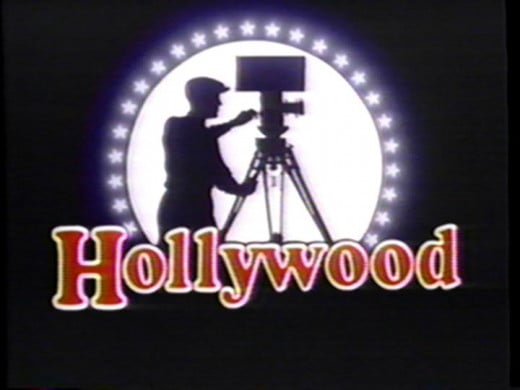
Hollywood
In 1968 film historian Kevin Brownlow wrote the book The Parade's Gone By chronicling the silent era. It contained interviews from many former stars, directors and crew members from the silent era. Realizing that these people were not going to be around much longer, Brownlow decided this was the last opportunity to interview them on film before they all passed away from old age. He also sought to change American's bias towards silent films. When shown on television, silent films were shown at the wrong speed, using substandard prints, and accompanied by annoying piano music. In his 1980 series Hollywood, Brownlow, along with David Gill, tried to change this bias by using only pristine prints of silent films, shown at the correct speed and accompanied by orchestral music composed by Carl Davis. He also located rare outtakes and behind the scenes production photos. The 13 part series Hollywood is still the definitive documentary on the silent era. Unfortunately it is not available on DVD. The documentary did it's job, making silent films more popular with modern audiences. With that came a thriving home video market for silent films. But the end result was where once studios did not ask for much money to use their old films in documentaries, they are now demanding too much money. In order to license all the clips used in Hollywood at the fees the major studios are currently asking for, the entire set would end up costing around $700.
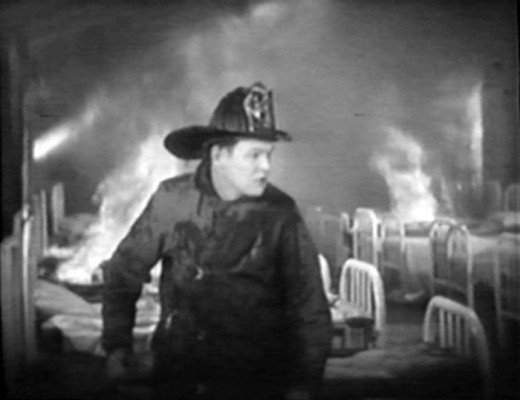
The Fire Brigade ( 1926 )
Speaking of the series Hollywood, the first episode with an effective demonstration. First it showed our perceptions of silent films with a poor quality clip from Life of an American Fireman ( 1902 ), a film from the Edison era. It was immediately followed by a pristine clip from The Fire Brigade, shown at the correct speed and with orchestration from Carl Davis. An orphanage was in flames with children trapped inside. Firemen race into the building even as it begins to collapse, and into burning rooms where the children are huddled. Then comes the announcement that The Fire Brigade was not even a major release. Even the B films during the late silent era were spectacles. Ever since I saw that clip, I have wanted to see the entire film. But for some reason, even though a pristine copy of the entire film still exists, no one has released this film on home video.
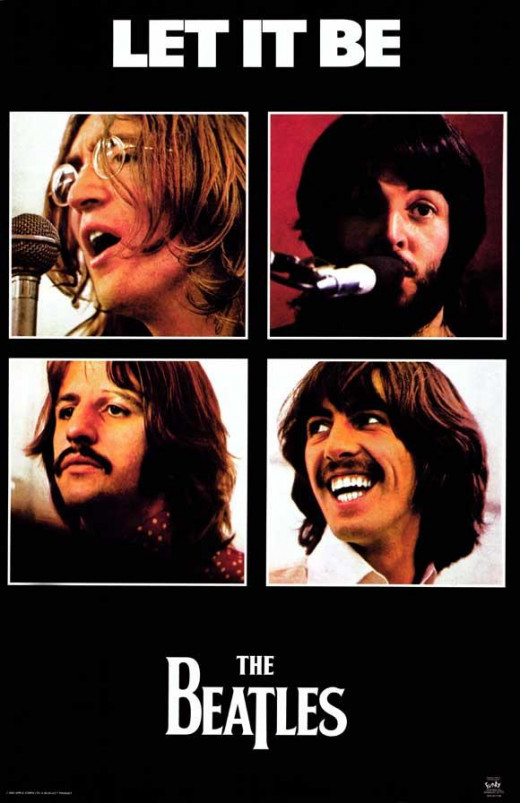
Let It Be ( 1970 )
The Beatles were only a year away from breaking up. By the end of the '60s they were getting on each other's nerves, and at blows as to what songs to include on their albums. They had just completed The White Album when Paul McCartney suggested they immediately return to the studio and beginning a stripped down rock album, just like the ones they made when they were still getting along with each other. The whole disaster was chronicled by a documentary crew. It turned out that it was not the music that was driving them apart. The Get Back album was abandoned. The Beatles briefly separated, then regrouped for a final album, Abbey Road, after which they announced the group was breaking up for good. Initially both the Get Back album and it's accompanying documentary were to be buried, an aborted Beatles album that was never completed. But eventually they decided that it had some of their best songs. Producer Phil Spector was brought in to go over what had already been recorded, add his own orchestaral tracks, and complete a final post break up Beatles album, now called Let It Be. The Beatles also owed a movie to United Artists, and to complete the contract completed the doccumentary behind the album. While most of the nastiness was edited out of Let It Be, you could still see the tension between the band members. After it's theatrical run it was released briefly on VHS. While the Beatles Anthology was being made, Apple Records completely restored and remastered the film. But then some or all of the living members of The Beatles decided they did not want the film rereleased because, even with the worst parts censored from the final edit, it still showed the Beatles at their worst.
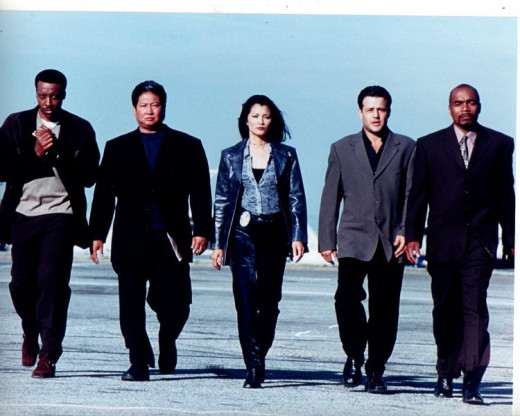
Martial Law
I feel sorry for Sammo Hung. He had hit the lottery by having a hit show on a major network. But then CBS ruined it, literally. Martial Law was the series created for Hong Kong action star Sammo Hung. Sammo played Sammo Law, a police detective from Hong Kong who transfers to the Los Angeles Police Department. Despite Sammo being virtually unknown in the United States, and not actually knowing how to speak English, the show quickly became a huge hit for CBS. But the network could not leave it alone. Shortly after the show's debut, Jackie Chan's Rush Hour ( 1998 ) became a box office hit. Deciding they wanted Martial Law to be more like Rush Hour, African American comedian Arsenio Hall was brought in to be Sammo's partner. To make room for a new cast member, the producers had to fire co-star Tammy Lauren. The series managed to survive the sudden revamp, and continued to be a hit, even winning the TV Guide Viewers Choice for best new television series. But once again CBS interfered, replacing the shows producers. This happened right after the season finale. Sammo and his arch nemesis, crime boss Lee Hei ( Tzi Ma ) had fallen out of a helicopter while fighting mid air, while back on the ground his captain ( Tom Wright ) was laying on the ground after being shot. The new producers gutted the cast, firing everyone but Sammo, Arsenio and Kelly Hu. And since the fired actors were part of the cliff hanger, there was no way to pick it up where they left off. The solution, pretend there was no cliff hanger. The next season opens months later, the Captain having died from his wound, and the other cops having quit. We find this out through a few offhand comments, along with another where it is mentioned that Sammo had once survived falling out of a helicopter. The abandonment of the cliffhanger, the firing of half the cast, and the show's new direction where Sammo an his fellow police battled an evil spy organization, helped drive off 3 million viewers. While the show was still technically a hit, CBS decided to pull the plug. The final episode concluded the series with Sammo deciding to return to China. Despite the mess the series turned into, it still had some of the greatest action scenes ever made for network television, and it has still maintained a loyal following among it's former viewers. And yet there are still no plans to release the series on DVD.
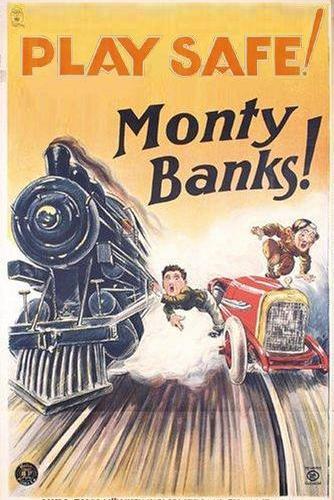
Play Safe ( 1927 )
If you have ever seen the compilation film Days of Thrills and Laughter ( 1961 ) then you know that the stand out segment features the ending from the Monty Banks movie Play Safe. Here thugs have kidnapped Monty's girl, and through a series of events have placed her in a boxcar of a runaway train. Thus begins one of the silent movie era's greatest action scenes. I have always wanted to see the full film, but much like The Fire Brigade, this is another silent movie that has never been released on home video.
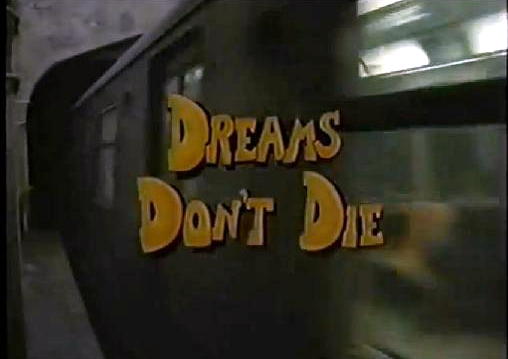
Dreams Don't Die ( 1982 )
Back when there were only three television networks, movies were an important part of the schedule. Not only did the networks spend a lot of money on the broadcast rights to major Hollywood movies, many which had just ended their theatrical runs, but commissioned their own network made for television movies. But in the '80s, cable networks like HBO began outbidding the broadcast networks for the broadcast rights for new movies. That was quickly followed by the rise of pre-recorded VHS tapes and video rental shops. The broadcast networks were the last to get them, and had to compete with home video which could show them uncut and uncensored. As the networks gave up airing theatrical films, they also abandoned made for television movies ( with the exception of the occasional Hallmark film ). Hundreds of made for television movies were made between the 60s and early 90s, only a fraction of which were released on home video. The problem here, most of these movies featured television actors and not major Hollywood stars. And because they only aired a few times there was little chance of them building a following. They became obscure and forgotten, only remembered by anyone older than 40. To complicate matters more, most of the telemovies were made by major studios, and as such would be the lowest films in their library, and one of the last they would consider releasing on DVD. For nostalgia purposes I wish someone would begin releasing these films, perhaps as part of box sets containing a dozen or more films each. If that can't be done then it would be nice if my favorite telemovie was released as a stand alone. Dreams Don't Die was an after school special-ish film about a teenage graffiti artists who is inspired by a cop to give up tagging trains and become a professional artist. There is also a second plot involving a teenage drug lord that the graffiti artists ends up taking down. Sounds dumb. Most of the made for television movies were pretty dumb. But that did not stop it from being entertaining, and a bit inspiring in a preachy television way.
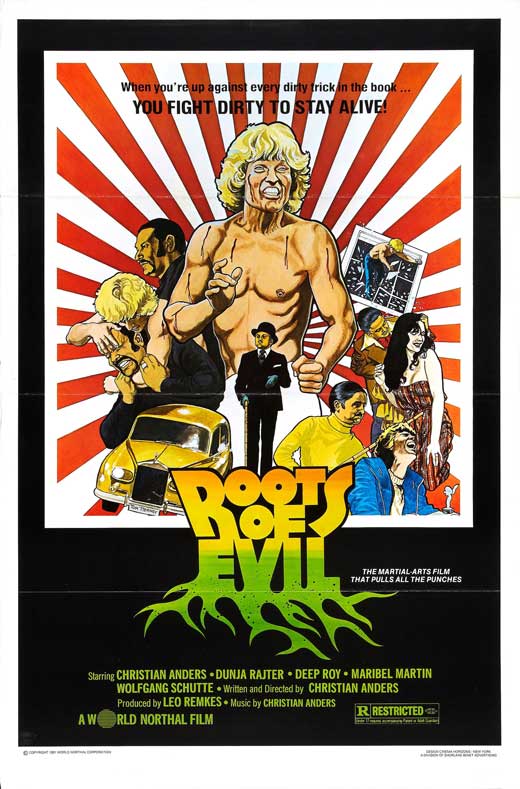
Roots of Evil ( 1979 )
And speaking of dumb, there was this European martial arts film from 1979 starring German pop star Christian Anders, Roots of Evil. It has everything a martial arts film should not; a stupid hero, incompetent police, and the villain is a dwarf ( played by cult star Deep Roy ). A cult classic that has somehow avoided being released on home video in the United States, and as far as I can tell, has never been remastered in widescreen.
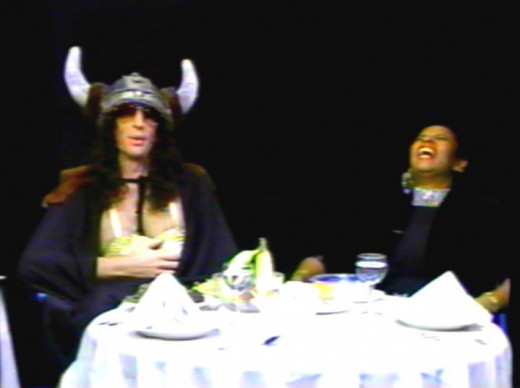
Howard Stern's Channel 9 Show
For fans of the popular morning radio show host, his early 90s television show, commonly referred to as The Channel 9 Show, but actually going by the name The Howard Stern Summer Show for it's first few weeks, then The Howard Stern Show when WWOR expanded it's run beyond summer. Part interview show, part sketch comedy, it regularly beat the first half hour of Saturday Night Live in the ratings. In early 1991 All America Television syndicated the show nationwide. The syndicated version was slightly different. WWOR had Stern doing a few live commercials during the show for local sponsors. While these commercials involved short skits, and were often entertaining, they were edited out of the syndicated version and replaced with skits that were only part of the syndicated show. Therefore both the WWOR broadcast and the syndicated show had footage the other didn't. Once when talking about how a skit with radio show regular Steve Rossi had to be cut twice for time constraints, Stern mentioned that they often ended up with more skits and longer interviews than what could fit it the hour, and had many hours of footage that never aired during the show's run. Fans looking for both a quality copy of all the episodes and the unreleased deleted footage have been waiting decades for the show to be released on home video. But according to Stern, Universal who co-own the rights to the show refuses to allow it to be released on home video, and have refused to sell him their half of the rights.
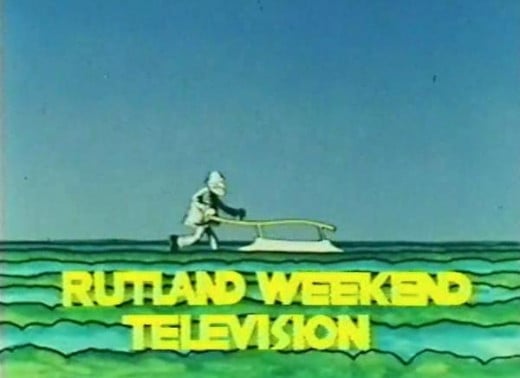
Rutland Weekend Television
After the final episode of Monty Python, the members went on to new solo projects. John Cleese, who had left a season earlier, created what is now considered television's funniest sitcom ever, Fawlty Towers. Writing team Michael Palin and Terry Jones, created Ripping Yarns which parodied the British adventure stories they had read in school. But perhaps the one post Python television project that came close to continuing the same style of humor was Eric Idle's Rutland Weekend Television. The premise was a ultra-small television station and it's low budget attempts at it's own home grown programming, a perfect set up for random sketches. In fact, it was such a great idea for a premise that a year later Canada's Second City comedy troupe copied it for their own television show Second City Television. While only 14 episodes were made, and the show was to only post Python series not to have been offered to Time-Life television for syndication in North America, it did have an impact in the United States. During a guest hosting gig on Saturday Night Live, Eric Idle brought over a clip from Rutland Weekend Television, a short documentary on a Beatles type group called The Rutles. Lorne Michaels convinced Idle to expand the clip into a full mockumentary on the fictitious band. The result was The Rutles: All You Need Is Cash, a 90 minute special that aired during the regular SNL time slot. Another Rutland Weekend Television sketch where Idle does a gossip report on rock bands was reused on Monty Python Contractual Obligation Album. The name of a fictitious band mentioned in that sketch, Toad the Wet Sprocket, was later adopted by a real rock band as a temporary name, one they ended up keeping. Toad the Wet Sprocket subsequently went on to have mainstream success, along with some top ten hits. Rutland Weekend Television disappeared after it's initial broadcast, and has since never been made available for syndication or home video. After his experience with Monty Python's Flying Circus, Eric Idle insisted he would have half ownership of any other show he did for the BBC. Reportedly it is Idle who does not wish the shows to be re-released.
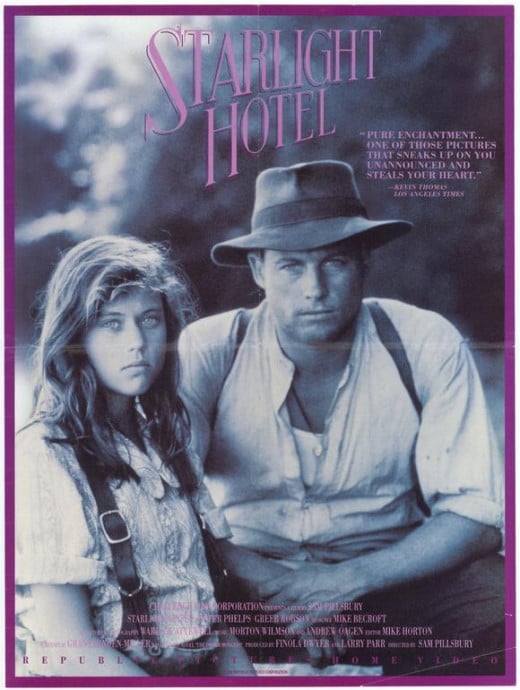
Starlight Hotel ( 1987 )
One of my top ten favorite films is not on DVD. The New Zealand made drama did get a home video release in the United States through Republic Pictures, but back in the days of VHS. Even when it was released on laserdisc it was full screen with no extras. And from the looks of my laserdisc, it was not even remastered, but rather they reused the VHS master. The problem here is not just that this film is too obscure to be of interest for those releasing it on DVD, but that even in it's native country of New Zealand they have not gotten around to releasing it on DVD yet ( although as of recently I have heard some reports that the New Zealand Film Commission has decided to release all of their movies, including Starlight Hotel, as remastered DVDs. That takes care of that country, but what about over here? The only reason why it was released in this country in the first place was because at the time Republic Pictures was distributing art house films. Along with that came distribution to syndicated television and home video. It was on late night television that I discovered it. But since it had very little commercial success it has since disappeared from this country.
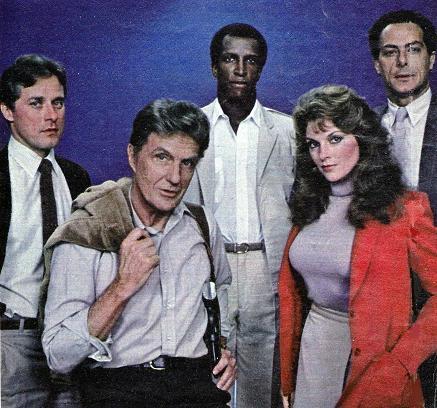
Strike Force
And here is one of my top ten favorite shows from the past, also unavailable on DVD despite starring Robert Stack. It was a police drama, but unlike the others that concentrated on detective work, this dealt with a division of the police that specialized in assaulting and capturing gangs of criminals. This lead to some of the best actions scenes ever filmed for television up to that date, and not equaled until the late 90s. Perhaps that is why it had earned the reputation of being the most violent show in television history up to that time ( 1981-82 ). Having only lasted a single season, which was cut short when the ratings started to drop, not enough episodes existed for syndication. While the pilot episode was released on VHS a few years later as a stand alone movie, none of the other episodes have ever been released on home video.
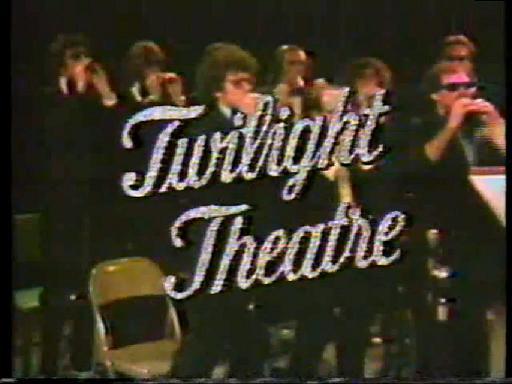
Twilight Theater
At one time NBC was concerned with it's late night Saturday time slot, the one usually filled by Saturday Night Live. They wanted specials to fill the weeks that would otherwise have reruns. More recently NBC has no problems with SNL reruns, and at current even reruns an hour long version of the show in prime time a week later. But back in the 70s through 90s there seemed to be a need to fill that time slot with specials. many of these specials were produced by Lorne Michaels, and featured cast members from SNL. There was the infamous Mr Mike's Mondo Video which NBC deemed too extreme even to air after hours, the aforementioned Rutles: All You Need is Cash, Bob & Ray & Jane & Laraine & Gilda, and The Things We Did Last Summer which featured filmed bits with each cast member. Even after Lorne Michaels temporaraly left NBC and his producing gig at SNL, NBC continued to fill the spot with specials. One of them was a weird yet very entertaining sketch comedy show called Twilight Theater. The show appeared to be sketches written and produced by different writers, and tied together by segments hosted by Roddy Mcdowall. A second and very disappointing Twilight Theater II aired a few months later, hosted by Leslie Nielsen and Mr T, after which no more episodes were made. Despite the cult status the show has picked up over the years, it has never been repeated or released on home video.
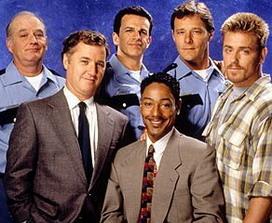
Bakersfield PD
Hill Street Blues had been off the air for six seasons by the time someone decided to parody it. Perhaps that is why this brilliant police comedy did not do so well in the ratings. Most of the gags were references to a show that had not been on the air for years. Another problem, the show was on Fox. This was around the time Fox had begun cancelling promising shows after a single season if they did not do spectacularly well in the ratings. I could fill an entire article on great shows on Fox that were prematurely cancelled. While technically Bakersfield PD lasted a season, we are once again talking about Fox. Only 17 episodes were ordered for it's first season, with a nice fat hiatus between December and the following July. To few episodes to put into syndication. But at least it had twice as many episodes than some of the other cancelled series I would like to see on DVD.
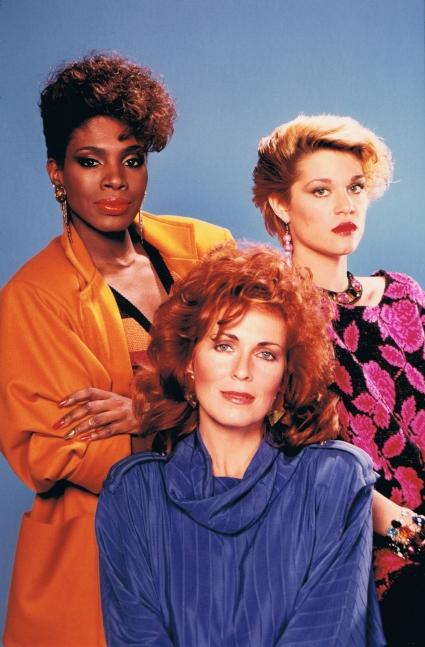
Cancelled Too Soon
Some of my all time favorite television series were tragically cancelled after only a few weeks. This makes it near impossible for them ever to be resurrected on home video. Not only was their early cancellation proof that most of America had rejected the show, but by being on the air for so short a period of time, very few had the chance to see and remember the show ever existed. But this is not the case of every short lived show. Police Squad!, cancelled after six episodes, somehow picked up a cult following among Zucker Abrahams & Zucker fans to the point where a successful movie based on the series was made. This assured that, even at 6 episodes, Police Squad! got a home video release. Other shows were not as lucky. Take Codename: Foxfire, a series about three female spies working for the brother of the president. Lasting only about six episodes, it was one of many odd programs that NBC tried out on Friday night. This would include the talking ape show Mr. Smith, Misfits of Science, Manimal, Stingray, V, The Master, Michael Nesmith's Television Parts, The Last Precinct and many others even more obscure than what I have already listed. None of them were given much of a chance, and most of them were so bad they deserved no chance at all. But I liked Codename: Foxfire a lot, and was disappointed when it was cancelled because NBC realized it was too expensive to produce.
No Soap, Radio was another series with little chance of survival. Seemingly pulled out of thin air as a replacement for Police Squad!, it was not only put into the same time slot that killed the previous show, but with no pre-publicity whatsoever, and in addition needing to win over the same viewers upset that it had replaced their favorite show. In fact, the only ones who remembered this series were the early Police Squad! fans. ABC used it as a placeholder until they could find something more permanent for the time slot. Never-the-less, the half sitcom, half sketch comedy show No Soap, Radio won over most of the Police Squad! fans, including me. Described by many as a cross between Fawlty Towers and Monty Python's Flying Circus, ( although not exactly ) there was nothing like it on television at the time. And then, it was gone.
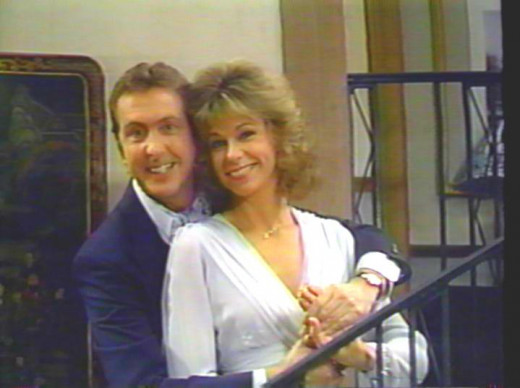
Nearly Departed actually did have a member of Monty Python. For a while Eric Idle was under contract with NBC, resulting in both a miniseries of the book Around the World in 80 Days, and his own television series. The premise had Idle as part of a happily married couple who are killed in a car wreck. Their ghosts return to their old home to spend the afterlife, but have to put up with an obnoxious family who have moved in. Sounds a lot like Beetle Juice ( 1988 ), right? But there were also elements of Topper ( 1937 ) thrown in as well. The grandfather of the annoying family is the only one who can see and hear the ghosts, and interacts with them each episode. There also seemed to be inspiration from the Amazing Stories episode BOO! that also involved a married ghost couple having to put up with obnoxious new residents. Someone at NBC must have hated the show immensely. Not only was it cancelled, but at the last second and without any warning. It was literally still scheduled to air at 7:30 PM, the promos for that nights episode still airing and everything. But by 8:00 PM someone at NBC gave the order to replace that night's episode with a rerun from a different series. There were two more episodes that never aired on NBC, and have never been seen in America.
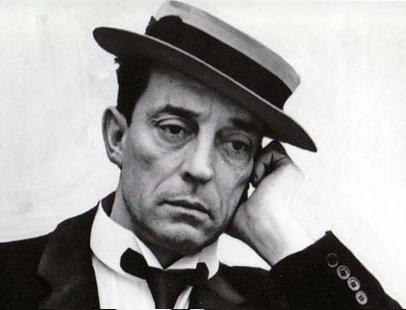
Buster Keaton
Buster Keaton is recognized as one of the all time greatest screen comedians. While the silent movies he made at his own studio have been available on home video for a long time, most of his work made in the sound era had been ignored for years, with the assumption that everything Keaton made from M.G.M. studios on up [ excluding The Cameraman ( 1928) ] was substandard. While there is some truth to that, Keaton was given the artistic freedom, nearly unlimited budget and time to make his silent masterpieces, and did suffer from alcoholism for much of the 1930s which effected his performance, he was still capable of giving great performances even in the worst of his films. During the 90s M.G.M. released the sound films he did for their studio on VHS and in a laserdisc box set, and Image released his sound short The Railrodder ( 1965 ) along with it's making of documentary, but otherwise only his silent films were on home video. Within the past decade his other work finally showed up on home media. Columbia released all the sound shorts he made for their studio in a box set, followed by Keno releasing all of his sound shorts made for Educational Pictures, along with a few DVD collections of random movies, television commercials and industrial films. Even so, Keaton remained prolific in the film industry even during the years his career was on the skids, working wherever or whenever he could. Even with all that has been released, there is still a lot of Keaton still not available on home video. Most frustrating are a few of his starring roles. Aside from many of the M.G.M. features that have not yet made the transition from laserdisc to DVD, there is Le Roi des Champs-Élysées ( 1934 ), the film he made immediately after being fired by M.G.M. Maybe no Hollywood studio would hire Keaton at that time, but there were plenty of studios in Europe that would jump at the chance. While this French film may not be up to the standards of his silent films, it was reportedly much better than what he had previously made for M.G.M. Meanwhile El Moderno Barba Azul ( 1946 ) is as far from Keaton's best work as you can get. Regularly listed among the worst movies ever made, this Mexican film was so bad that it's English dub version, Boom in the Moon, was shelved until the 80s when it finally got it's U.S. release on VHS. It also has the distinction of being the last Keaton film to bill him as the star.
Keaton was one of the first major movie stars to work on television, from commercials to guest starring on television shows. Among the ones that still have not been released on home media include his own television show Life with Buster Keaton from 1951. Shot on film, the entire series is reported to still exist. Some of the episodes were cut together to produce a new film for the European market, The Misadventures of Buster Keaton. This is the only version of the show that has so far been available on the home video market. Another series, The Buster Keaton Comedy Show, aired locally on KTTV Los Angeles in 1949. Reportedly it aired live and was never recorded, but there is some talk that at least some footage from the earlier show was preserved. Some sources claim that Life with Buster Keaton was the entirety of the earlier series re-shot on film using the same scripts so that it could be shown nationwide. Several movies with Keaton in supporting or cameo roles that have never had legitimate releases on DVD include Li'l Abner ( 1940 ), San Diego, I Love You ( 1944 ), That's The Spirit ( 1945 ), That Night With You ( 1945 ), She Went to the Races ( 1945 ), God's Country ( 1946 ), El Colmillo de Buda ( 1949 ), The Lovable Cheat ( 1949 ), You're My Everything ( 1949 ), L'Incantevole Nemica ( 1953 ), and Due Marines e un Generale a.k.a. War Italian Style ( 1966 ) which was the final film featuring Buster Keaton to be released in theaters. One film that has never been released was Ten Girls Ago ( 1962 ) which was completed, but the producer went bankrupt before he could finish post production. Reportedly the film elements and soundtrack have been sitting around in a vault for 50 years waiting for someone to edit and release the movie. No reason why it can't be finished for home video release.
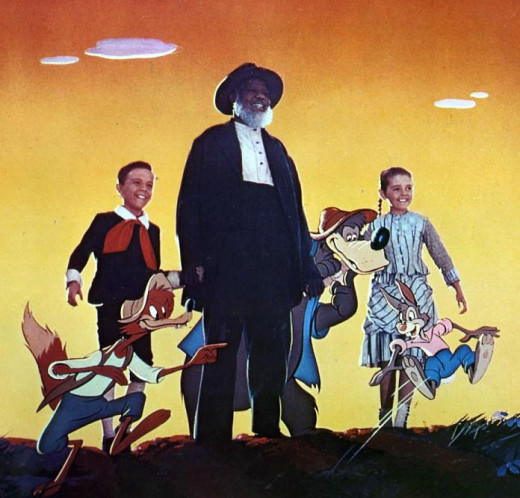
Not Released in the United States
Another annoying thing that prevents me from completing my movie collection is when the film is released in other countries, but not here in the United States. Oh sure, I could break the law a bit and buy an import. Those DVDs can only be legally sold in their respective countries, but a loophole in the law allows them to be resold anywhere as "used". Trying to get my DVD player to play a DVD coded for a different region is a different matter. And I would prefer the box being in English. The sci-fi comedy Electric Dreams ( 1984 ) is one of the few imports available in an English box. The bad news is it is PAL, a format that does not play on American televisions.
I have a collection of every Disney feature film, dating back to the days of VHS. A collection of every film, save one. Back in the 1960s and 70s when the first wave of political correctness took over this country, and everything from The Little Rascals to Bugs Bunny cartoons were being edited to remove any hint of racial humor, Song of the South ( 1946 ) was still being shown in theaters. The Disney company was not being insensitive. They had already shelves or edited a bunch of the short cartoons, and much to the disdain of purists, had removed the black centaurs from Fantasia ( 1940 ). But they did not think Song of the South crossed the line into offensive. I guess it was a matter of opinion. And by 1980 there were many pressure groups who felt that Uncle Remus was a negative stereotype. So Disney decided not to release the film on home video in the United States. Mind you, they had no problem releasing the same film on home video overseas. If you did not mind Japanese subtitles, you could have bought a copy yourself.
One of the most popular film series in Japanese cinema was Zatoichi, the Blind Swordsman. 25 films were made between 1962 and 1973, with one last movie being made in 1989. In between there was a television series consisting of about 100 episodes made between 1974 and 1979. 26 films were made in the original series, 25 which are now available on DVD. So why not all 26? No one seems to know. HVE ( Home Vision Entertainment ) began releasing the movie series in sequential order in numbered boxes beginning with the first movie. They got as far as #13, skipped to #15, then skipped to #17 ending at #19. Part of the reason for this was a rival company AnimEigo who obtained the rights to #16 and #20 through #25. Another company, Tokyo Shock, obtained the rights to #26, and the rights to the Zatoichi television series. But between the three companies competing to release the Zatoichi films, none of them released #14, Zatoichi's Pilgrimage ( 1966 ). For American fans of Zatoichi, this has left a disturbing gap in their collection. Why? Fans began to believe an internet story that claimed that Miramax was the company hording the rights to #14, and was refusing to release it. The story went like this: Quentin Taratino was a huge fan of the 14th film in the series and wanted to do an American remake. Miramax obtained the rights to remake the film, along with the home video and distribution rights to the original film. Plans fell through for the American remake, and Miramax decided not to release the original version because they were already releasing what was supposed to be the first film in Beat Takeshi's reboot of the series.
The Miramax story persisted for years as millions of Zatoichi fans bombarded the company with emails begging them to release the movie. The story seemed credible as Miramax had been guilty in the past of obtaining the distribution rights to classic Asian films and then taking forever to release them. Eventually Miramax had enough, and had their internet spokesman contact every website and forum perpetuating the story, telling them that the story was 100% not true, and Miramax never did have the rights. A new story emerged. Shintaro Katsu was not just the actor who played Zatoichi in all 26 films, but the creative force behind most of the films. When his studio Daiei had financial troubles in the late 60s, Katsu began producing the films himself, eventually changing studios to Toho when Daiei went bankrupt. Apparently Shintaro Katsu's production company ended up completely owning #14 despite it having been distributed through Daiei. The story goes that HVE had attempted to acquire the rights to #14 but was rebuffed by the Katsu estate, the current owners of the film. It is the Katsu estate who refuses to allow the film to be released. The only problem with this story is that the movie has been released in Japan on home video, and the home video rights for the United States had previously been held by Chambara Video, although they never got around to releasing it before their rights expired. And currently Criterion has the rights to distribute #14 as streaming video. That does not sound like the Katsu estate is trying to keep the film buried. It has also lead to a third internet theory. Currently there are claims that Criterion held the rights all along, but has so far refused to release the movie on DVD. The problem with that theory is that HVE and Criterion are part of the same company.
That does not mean that Criterion is incapable of shelving films they have DVD distribution rights to. Anyone trying to complete their Jaque Tati collection will discover that neither Jour de Fête ( 1949 ) nor Parade ( 1974 ) are available in this country. Criterion currently holds the home video distribution rights to all the Tati films, but for reasons only known to them, have only released the Mr. Hulot films on DVD in this country.
Collector Sets I Am Still Waiting For
There have been a few collectors sets that fans have been asking for but have not been released. One would be the TMC Archives Abbott & Costello Collection. These would be all the films the comedy duo made outside Universal Studios and, along with Universals box set, would allow any A&C fan to complete their collection. Not only does Warner Brothers ( the current distributor of the TMC archives ) hold the home video rights to all of these films, but has access to the best prints for each. I am not saying that these are the best A&C films, in fact Jack & the Beanstalk ( 1952 ) is usually found on most "Worst Movies Ever Made" lists. And "Abbott & Costello Meet Captain Kidd" is not far behind. But if you own the Universal set there is a good chance you would want all the rest of the films, flaws and all.
Something else that collectors have been waiting for Warner Brothers to release is the chronological Looney Tunes and Merry Melodies. Why chronological? This is the only way to insure that every existing Warner Brothers cartoon gets released. In the past Warner Brothers has released a number of "Best of" sets which mix cartoons from different eras. These sets are usually abandoned after a handful of volumes, only for a new collection to be released a few years later, usually with most of the same cartoons. That means if I want to purchase a Looney Tunes cartoon I do not already own, It is usually on a disc where all the other cartoons I had bought from other collections. Releasing the cartoons in chronological volumes would at the least put an end to the double dipping, and allow me to watch these cartoons in the order they were made. Other classic cartoons have been given the complete chronological treatment, most notably the Disney cartoons. Even if Warner Brothers believes there is no market for a good half of their cartoons, such as the early 1930s cartoons made long before their popular characters were created, or the cheapo cartoons they made in the 1960s, they can still release them as part of their made for order DVD-R run.
But perhaps the most anticipated collectors set would be the Private Parts Ultimate Set. While Paramount has released Howard Stern's movie Private Parts ( 1997 ) on DVD, they have done so as a movie only version. In fact, Private Parts has become an evergreen for them, remaining in print for over a decade, and still in print as I write this hub. Stern himself has said he wants to release a special version that would have all the deleted scenes, both the theatrical and television versions, commentary and all the publicity programming made for the film. He has said that Paramount refuses to allow him to release anything but a movie only version. Paramount has been notorious in the past for releasing movie only versions of their films, then suddenly releasing deluxe editions once the movie only version goes out of print. But sice sales for Private Parts remain strong, there is no incentive for Paramount to release a special edition.
Urgent Need for Re-release
There have been many occasions where something was released on DVD and the releasing company screwed it up. Sometimes it is something trifle, like a few songs used in the original film are replaced with generic music. But other times it is a major screw up, and we feel we are owed a replacement release where the problem is fixed. On my list is the series Kung Fu. In 2004 Warner Brothers decided to remaster and digitally restore the series for high definition televisions. As long as they were going to the expense then they may as also released the results on DVD. But somewhere there was a failure in communication between the television and home video division. The restoration project involved cropping the frame so that the show would be letterboxed to fit HD screens. There was also some manipulation of the speed along with editing to allow for longer television breaks. The show may have been restored, but it had also been further edited for syndication. When the first season of the series was released on DVD, fans were furious. The home video division did not realize the shows had been edited until after they got negative feedback from customers. They discovered there was no restored masters that were not already edited for television. So for the second and third season DVD release they used the old VHS unrestored masters that were still full screen. A few years later Warner Brothers released the entire series in one box set, and there was hope that the mistakes made in earlier releases would be rectified. But instead Warner Brothers simply reused the same DVD program, with the first season being letterboxed and edited, and the second and third season being the VHS masters.
An even worse example came from Paramount with The Ren & Stimpy Show: UNCUT. There was a reason they gave the set that title. Shortly after the Ren & Stimpy Show began airing on Nickelodeon, episodes were pulled from the air and reedited to remove the gags that parents complained about. A couple may have been too extreme for young children, but most of the edits were innocent gross out gags. The constant censorship lead to a riff between the show creator John Kricfalusi, which eventually lead to John K being fired and the production of the show being turned over to other animators. There had been several home video releases of Ren & Stimpy cartoons, but always using the edited cartoons. In 2003 a new Viacom channel, Spike TV, decided they wanted an adult cartoon block to compete with Cartoon Network's Adult Swim. John K was re-hired to animate new Ren & Stimpy Adult Party Cartoon, this time with no censorship. The new cartoons were extreme and meant specifically for adults, and aired simultaneously with Spikes other adult cartoons; Gary the Rat and Stripperella. Episodes of the original Ren & Stimpy Show were also part of the block, all to be shown uncut for the first time since Nickelodeon made their edits, along with a "lost" censored episode that Nickelodeon never aired. John K was in charge of the restoration, restoring the footage that had been removed.
Unfortunately there was a backlash against Spike TV for their adult cartoon block, and after only a month it was suspended and eventually cancelled. There were still a few Ren & Stimpy Adult Party Cartoons that never aired, so John K asked for them to be released on DVD. As long as that season was being released, there was a decision to release the restored episodes as well. Viacom had already gone to great expense to have them restored, and had only aired a few of them before Spike cancelled their adult cartoon block. Fans of the series who could only see the uncut Nickelodeon episodes through poor quality bootlegs looked forward to the release of The Ren & Stimpy Show: UNCUT. But they were shocked when they finally saw the DVD. Every single episode had been edited for television. Once again there was miscommunication between the home video and television division. When John K restored the Ren & Stimpy episodes, someone at Spike took the completed results and edited them to fit the new commercial breaks. Not only were new fade outs added to the cartoons, a few minutes from each needed to be removed. In some cases this was achieved by editing a few seconds here and there, but in other cases entire scenes were removed. Despite being advertised on the box as "UNCUT", the cartoons inside were all edited. The same thing happened when the other seasons were released on DVD. At first John K denied that the DVDs had any edits, then claimed that if any edits existed then they had been made long after he left Nickelodeon and therefore were edits he had not known about during the restoration. But finally John K realized that someone had reedited the cartoons after he had restored them without telling him. A promise was made that in the future the entire Ren & Stimpy series would be released on DVD, including the Adult Party Cartoon season, with everything fully restored under John K's supervision. We are still waiting for that set.
One of the biggest screw ups a home video company does for release is when they do not even bother to remaster the movie for release. Lets not even bother to call these screw ups because most of the time the company releasing the movie was well aware they were using the pan-and-scan VHS masters. Their attitude was these movies were not worth going to the expense of remastering. Basically you are getting the same exact quality on DVD that you had from your VHS copy. I could expect this from the small independent companies that have no access to the original film prints, but not companies that have access to the original negative. Personally, there have been several DVDs I have either not bought or returned because they used the VHS pan-and-scan master. One of them was one of my all time favorite films, Summer Lovers ( 1982 ) which is still frustratingly only available as full screen. Even worse, the VHS release had some footage edited so that it would fit on a T-90 cassette.
Incomplete Series
I could go on forever with movies and series that have not been released on DVD, in fact this hub seems to have gone on forever. And believe me, I have only scratched the surface. These are just the top most wanted DVDs on my own list. I would like to conclude this hub with a few series that are in limbo. You all have gone through the same problem. The first or first few seasons of one of your favorite shows gets released on DVD, but the rest of the seasons are not, with no word when they will ever be released. Sometimes this ends a few years later with the release of the entire series in one box, making the seasons you already bought obsolete. That is what happened to me with The Larry Sanders Show, releasing the first season, followed a few years later with a best of compilation set with episodes from various seasons, and then finally a box set of the entire series. Still, there are a handful of series I am still waiting to complete. Disney released three seasons worth of The Muppet Show, but have still not released seasons 4 and 5. Furthermore I later learned that season 1 had been edited to remove songs that Disney did not feel like paying the royalties for. That means I now need a re-release of the first season, or the entire series in one box uncut. But there is still no word on any future Muppet Show releases. They released the first season of Steven Spielberg's Amazing Stories, but not the second which includes my favorite episodes. Tokyo Shock released the first season of the Zatoichi television series, but has still not released any other seasons.
And in the same vein, there was the release of the Shaw Brothers movies here in the states. The Shaw Brothers studio dominated the Hong Kong film industry between the 1930s up til the mid 80s. It's only rival would have been Golden Harvest, but even their films looked cheap in comparison. In retrospect, Shaw Brothers was the only Chinese film studio releasing Hollywood quality films, many which were now classic martial arts films. In fact, most of the greatest old school martial arts films were made by Shaw Brothers. The studio ceased producing theatrical films in the mid 80s, turning exclusively to videotaped television productions for TVB, and in the mid 90s Shaw Brothers withdrew all of their films from home video, using the film rights as collateral for their stock. Nearly a decade ago Celestial Pictures struck a deal with Shaw Brothers to restore and redistribute their film library. Beginning in 2006 many Shaw Brothers movies began appearing for the first time legally on DVD and Blu-ray in the United States. This began with Image who released 30 movies, and continued through other companies including Funimation, Well Go, Tokyo Shock and Dragon Dynasty. So far 96 Shaw Brothers films have been released in this country. But recently this has stopped. While Image, Well Go and Funimation have released all the Shaw Brothers films they have the rights to, Tokyo Shock and Dragon Dynasty are shelving at least 28 titles. Among them some of my all time favorite martial arts films. Tokyo Shock themselves pulled Magnificent Ruffians from the Amazon website when the first printing was recalled because of a "technical malfunction" on the disc, and then no further pressings were made. Since then Tokyo Shock has stated that they were done releasing any Shaw Brothers movies. But even more disturbing, both Tokyo Shock and Dragon Dynasty together grabbed the rights to the best and most popular Shaw Brothers films, leaving only the obscure titles for the other companies. Not only have they decided not to release them, but they have so far refused to hand the rights over to any other DVD company.
UPDATE FOR 2014
According to Adam West, the release of the Batman series on DVD is "imminent" and will be coming out soon. This based on him being asked to participate in some extras for the upcoming release, most likely a commentary track. But then again, this may just be 20th Century Fox and/or Warner Brothers taking the precaution of recording commentaries from Ward and West while they are still alive. Nearly all of the rest of the cast has passed on in the past few years, and that includes most of the villains. With Adam West now 85, and Burt Ward 68, waiting another 10 to 20 years to record a commentary track is probably not advisable. That is not to say that there has not been any positive signs. In the summer of 2012 Warner Brothers and 20th Century Fox finally came to one agreement. A deal was struck that would allow Warner and D.C. to sell merchandise based on the 1966 series. It is now just a matter of the participants agreeing to who will release the home video version. But at the least, this past year has disproved one theory as to why Batman has never been released on home video. D.C. has taken advantage of the new merchandising rights and has begun publishing a brand new comic book called Batman '66, a campy version of Batman based directly on the television series. Meanwhile Warner Brothers has released Legends of the Superheroes on DVD. This short lived live action series was Hanna-Barbera's attempt to do a prime time version of Superfriends without Superman or Wonder Woman as the live action rights to those two characters were held by other production companies. Adam West and Burt Ward revised their roles of Batman and Robin. And yest, the series was campy. This is proof that neither D.C. nor Warner Brothers has any interest in suppressing the old Batman television series.
Midway through the year Rupert Murdoch attempted to buy Warner Brothers in a proposed merge with 20th Century Fox. That merger would have ended the stalemate for sure. While the merger never happened, an agreement was finally reached in the fall of 2014, and season box sets and entire series box sets of Batman were released on Warners home video. There were some complaints about the steep price of the sets. And buyers complained that not all the episodes were complete. In some instances the ending tag for the next episode was missing, and at least one episode was missing an entire scene. Warners claimed that these were mistakes, and has promised to fix the problem by the next pressing.
In other news, Zatoichi #14 finally made it's North American home video debut. But part of a $150 box set of all the Zatoichi films from Criterion. There is still no word if Criterion will release the movie as a stand alone DVD/Blu-ray combo, or if the remaining movies will be made available for HVE's numbered discs. Criterion finally released all the Jaques Tati films in a single box set "The Complete Jaques Tati" which contains every single movie and every Tati short. Still no word on if Criterion will release the movies as single releases.
UPDATE FOR 2016
The directors cut of Hard Target was released on Blu-ray. As was a widescreen version of Summer Lovers in a limited edition ( with retail price to match ) release from a company called Twilight Time.
On the television front, Martial Law finally got a DVD release. A set with both seasons and the crossover episodes on Early Edition and Walker: Texas Ranger. While the second season of Amazing Stories has still not been released in North America, it has been released in Australia in a region 0 set which can be ordered through Amazon. NBC is currently planning to revive the series for a third season ( after 30 years!!) , which would almost certainly include a home video release of the new season, which would probably force them to finally release the second season.
Some of Buster Keaton's films are sort of available. You're My Everything was released on DVD-R as a video on demand from 20th Century Fox. Some questionable video companies released other films, notably The Lovable Cheat, Lil' Abner and Boom on the Moon. Still no word on the quality, but they all appear to have been lifted from VHS masters.
Finally, all of Jaques Tati's films are now available in a box set from Criterion.


